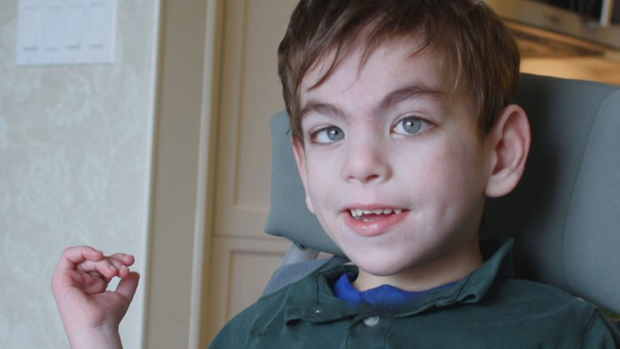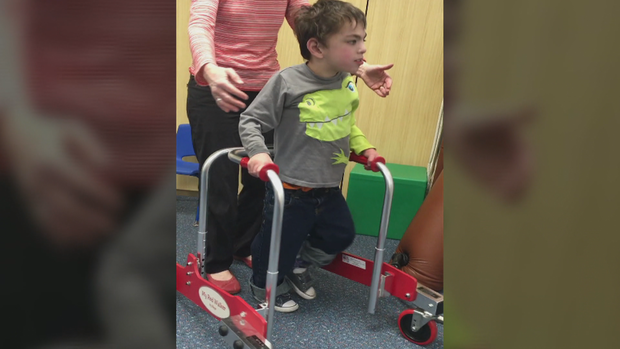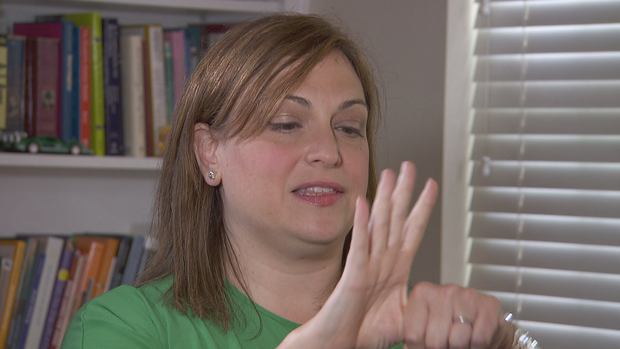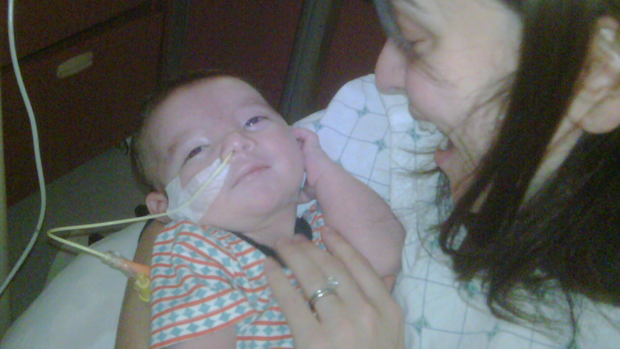Mother of 6-year-old with microcephaly: "It gets better"
ROCKVILLE, Md. -- Like most six-year-olds, Edmund Picciuto loves singing, toys and, of course, his mother.
But unlike most of his peers, Edmund has microcephaly, the result of a genetic disorder his mom Elizabeth Picciuto didn't know about while pregnant.
"When he first came home my initial thought was, I can't do this. I can't do this. I didn't sign up for this. Which is not true at all -- of course you sign up for it," she said.
She and her husband, Vincent, were told Edmund might never recognize them, and that he might not even survive. Some doctors went as far as suggesting he be institutionalized.
"My first response was 'I didn't think people did that anymore,'" Picciuto explained.
Edmund didn't sit up or crawl until he was three, and he still doesn't talk. But he's slowly meeting some milestones. He's walking with help, and riding a bike. He also loves playing with his two brothers, and singing.
"We're teaching him sign language," Picciuto told CBS News. But it's not just typical sign language -- she says Edmund has invented some of his own signs.
Microcephaly can arise from a number of different conditions: genetic ones like Edmund's, and infections during pregnancy from viruses like measles and Zika. Symptoms and prognosis can vary widely.
It's too early to tell how it will affect the lives of those infected with Zika. Picciuto remembers the emotional toll of an uncertain future.
"I kept saying, what's going to happen? What's going to happen? What's going to happen?" And she still doesn't really know.
"I actually haven't asked for a prognosis in forever, because I don't expect anyone to really be able to tell me."
But Picciuto has hopeful advice for the mothers of babies with birth defects from Zika.
"It gets better. You know it will get better for you. You will love your child, and your child will love you."




